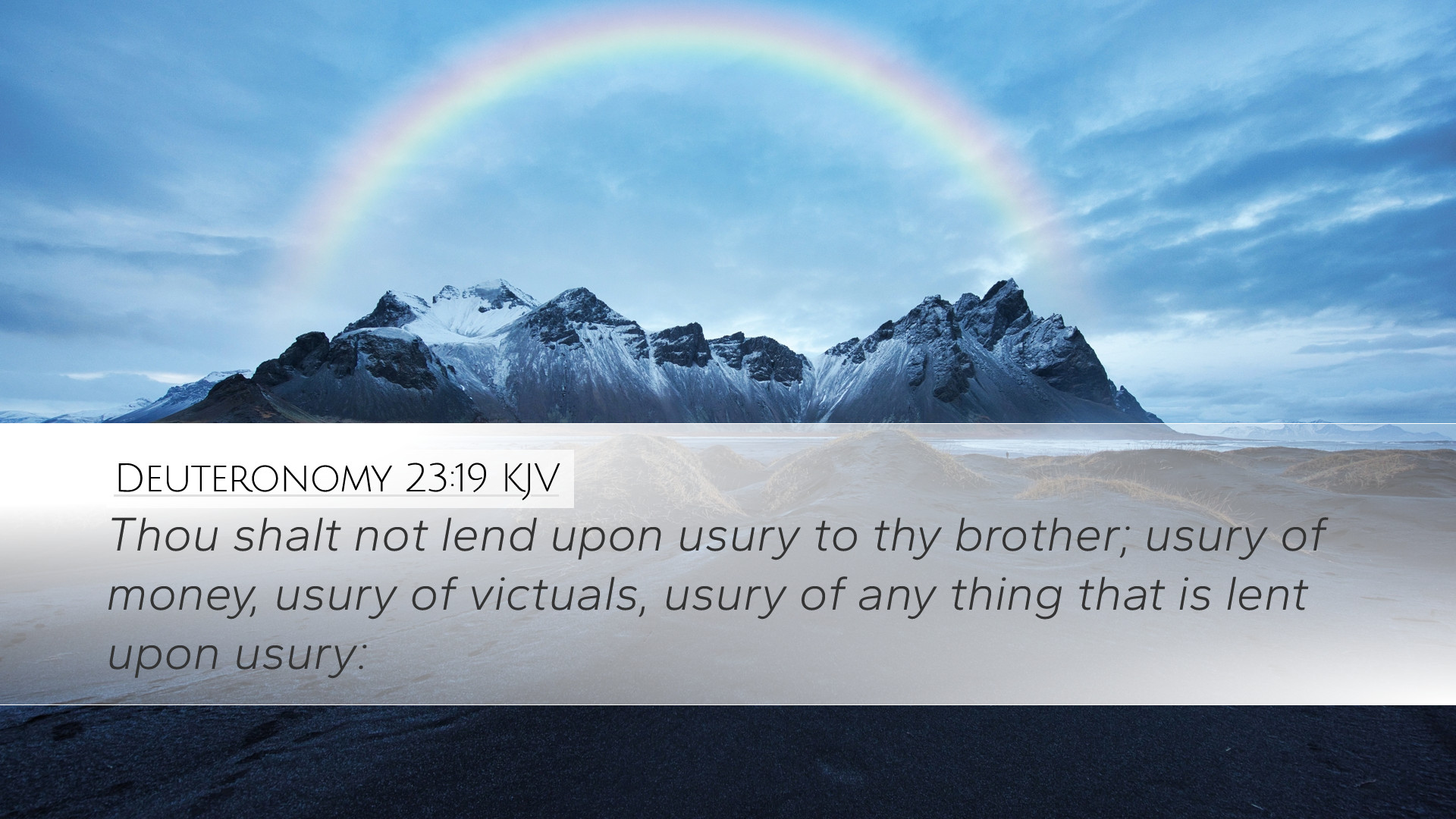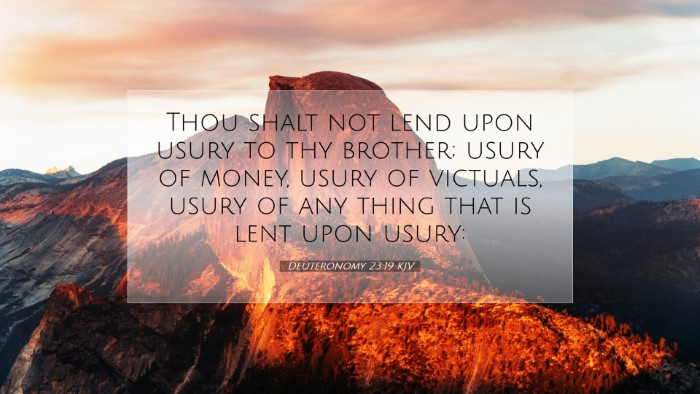Commentary on Deuteronomy 23:19
Deuteronomy 23:19 states: "You shall not charge interest on loans to your brother, interest on money, interest on food, interest on anything that is lent for interest." This command is an intrinsic part of the moral and social law given to Israel, emphasizing the principles of brotherhood, justice, and compassion.
Understanding the Context
In the context of the Mosaic Law, interest among brethren is viewed not merely as a financial transaction but as a reflection of the community's moral fabric. Matthew Henry notes that this command underlines the relational dynamic within ancient Israel, where each member of the community was to act with love and support towards one another.
The Nature of Interest
Albert Barnes comments on the implications of interest, suggesting that it symbolizes exploitation. Charging interest, particularly to fellow Israelites, would indicate an absence of brotherly love and a willingness to capitalize on another's misfortune. The Israelites were called to foster a community that thrived on mutual aid rather than one of financial oppression.
Theological Implications
This commandment highlights several theological themes:
- Brotherhood and Community: Adam Clarke points out that the stipulation is a reminder that each member of the community is a part of one another. Jews, as a covenant people, were expected to treat their fellow Israelites with dignity and respect.
- Justice and Righteousness: The prohibition against interest reflects God's justice. God was concerned with the poor and vulnerable; hence, His law protects the weak from being taken advantage of by the strong.
- Divine Provision: Not charging interest signifies a trust in God’s provision. Instead of relying on financial transactions to secure wealth, the Israelites were to rely on God's blessings and providence.
Practical Applications for Today
For modern believers, the principles underlying Deuteronomy 23:19 resonate with ongoing discussions about fairness, exploitation, and economic ethics:
- Ethical Financial Practices: The spirit of this commandment calls Christians to evaluate their own financial dealings and ensure they reflect the love and compassion Christ exemplified.
- Support for the Needy: Similar to the ancient Israelites, the Church today has a mandate to support its members in need, fostering an environment where the community uplifts the vulnerable without using their plight for profit.
- Trust in God: As was the expectation in Old Testament times, Christians are encouraged to place trust in God to provide for their needs rather than seeking to manipulate circumstances for personal gain.
Conclusion
Deuteronomy 23:19 serves as a timeless reminder of the call to community integrity within the body of Christ. By adhering to the principles of support, fairness, and trust in divine provision, believers can cultivate a community that honors God and reflects His character.
References:
- Matthew Henry's Commentary on the Whole Bible
- Albert Barnes' Notes on the Bible
- Adam Clarke's Commentary on the Bible


